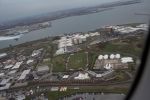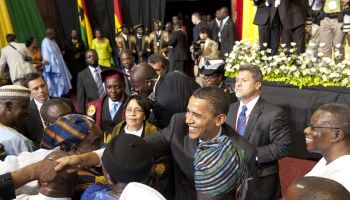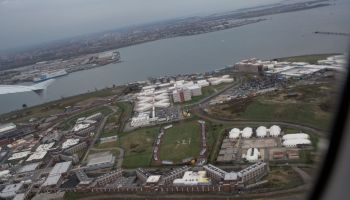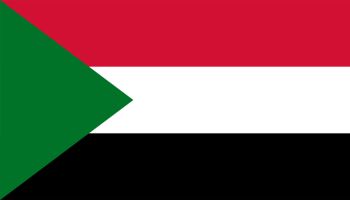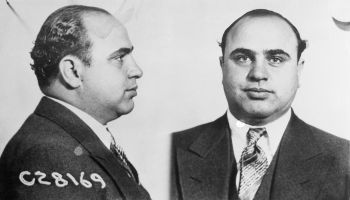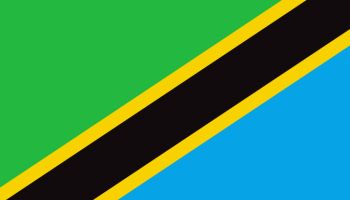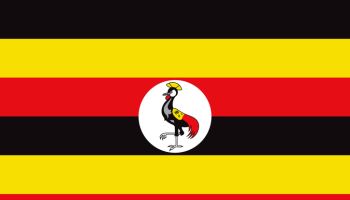In July 2009 when President Barack Obama touched down in Accra, Ghana, he became the third U.S. president to visit the nation that got its independence 52 years prior. The trip with his wife, Michelle, and two daughters, Malia and Sasha, was the first of many to the continent that later included Senegal, South Africa, Tanzania, Kenya and Ethiopia.
President Obama’s win as the leader of the free world was monumental for African Americans and Africans. The 44th president may have been raised in Hawaii, but it was no secret that his father was a Kenyan government economist. In the most literal sense, he was an African American, with an undeniable connection to the continent. In his father’s hometown of Kogelo, the Kenyan government installed electricity, built roads and even allowed donors to set up schools bearing the name Obama, all in his honor.
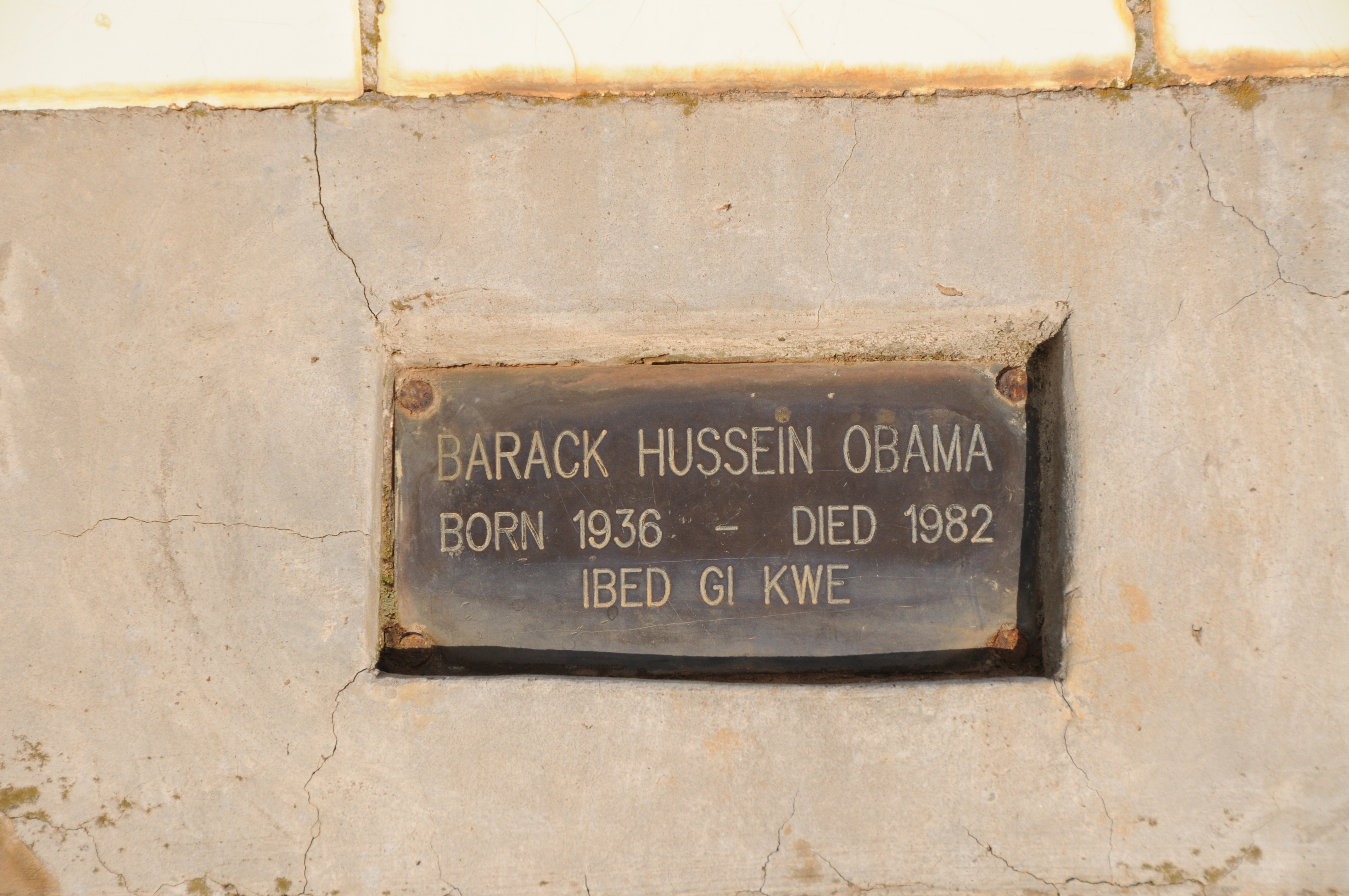
Source: Wendy Stone / Getty
Today, if you drive around any major sub-Saharan city —Accra, Lagos, Lusaka— you’ll find the Obama family on posters, framed newspaper clippings in barbershops and 6-foot paintings sold on the roadside. Much as it is in Detroit, Philadelphia or Oakland, the entire Obama clan is beloved by millions of Africans.
But expectations of his how his tenure would translate to policy as multifaceted as the continent itself.
“It is impossible to generalize about what ‘Africans’ expected from Obama, as Africans differ by country, ethnicity, age, gender, and educational background—just like people everywhere,” said Chester A. Crocker, Georgetown professor, former Assistant Secretary of State for Africa and co-editor of Minding the Gap: African Conflict Management in a Time of Change.
“Some Africans may have hoped he would ‘privilege’ African issues and challenges on his foreign policy agenda, making Africa count more in global councils . If so, they were largely disappointed because that would not have been Obama’s instinct. He did not wish to be perceived … primarily in racial terms and he would have been criticized at home had he done so.”
Despite this, Obama did make an attempt appease Africans in policy directed toward sustainability, technological advancement and health relief. And yet, there are some Africans who feel that the previous administration actually did more for the continent than the first black president.
“When you think of the success that [George W.] Bush had in Africa in reducing the impact of AIDS through PEPFAR [President’s Emergency Plan for AIDS Relief], we were expecting the president to continue that legacy,” says Abiola Oke, the Nigerian CEO of Okayafrica.
He adds, “For all the failings of the Bush administration, that was one thing he actually got right, but the [Obama] administration cut funding to that. We were expecting to see more trade deals that didn’t simply focus on extraction. He did however develop YALI.”
In 2010, Obama in conjunction with the U.S. Agency for International Development and the Peace Corps launched the Young African Leaders Initiative (YALI). The program that brought thousands of youth programs to sub-Saharan Africa works to invest in the next generation of African leaders.
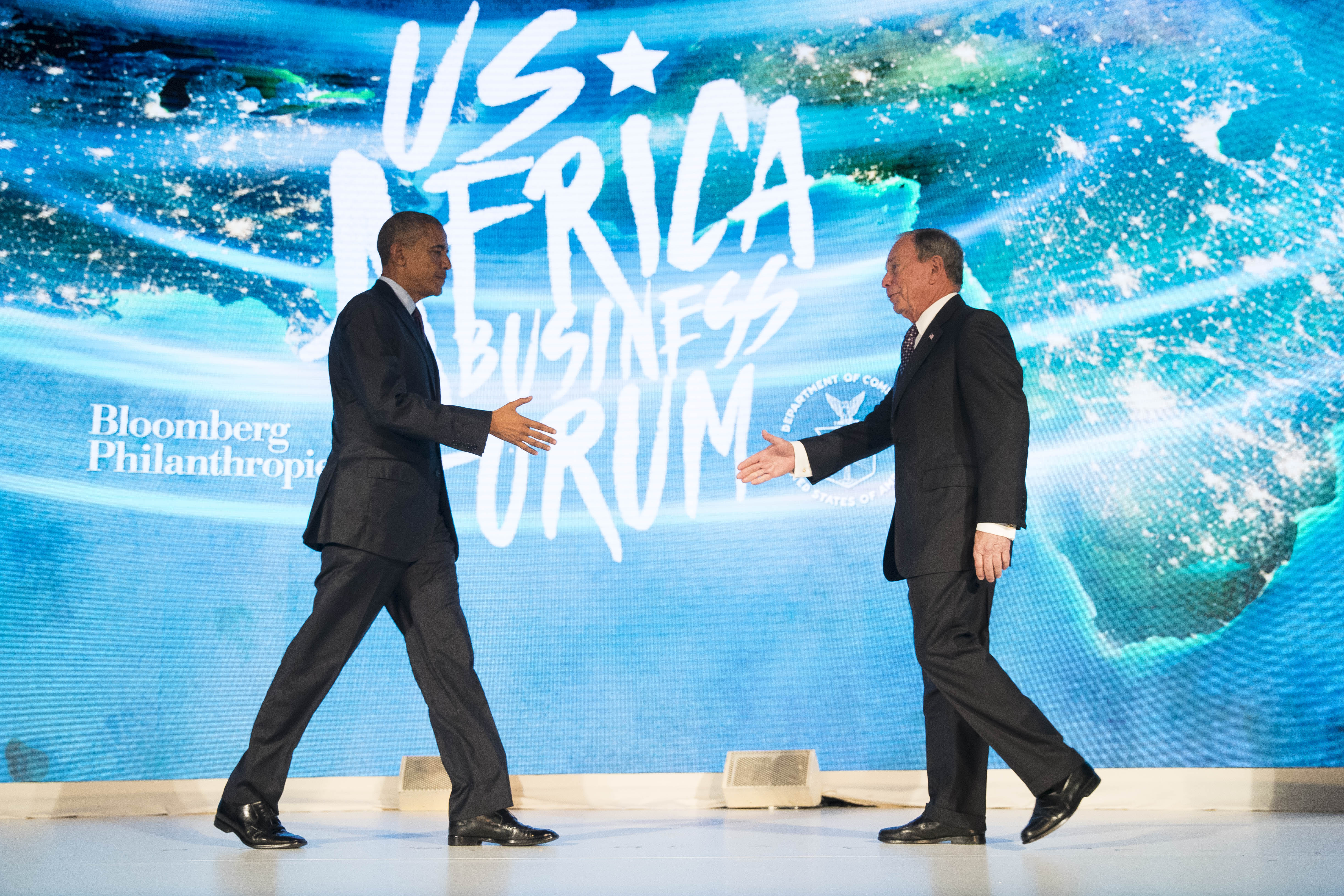
Source: Drew Angerer / Getty
Four years later, Obama became the first U.S. president to get Africa’s present leaders to convene at the U.S.-Africa Leaders Summit. As the Washington Post notes, the three-day conference’s purpose was to establish relationships with African countries that go beyond responding to the latest political or humanitarian emergency. Bringing in his top advisors, Obama avoided flashy financial promises and private one-on-one meetings to feed egos.
Instead, he changed the conversation from altruism to an even exchange of goods, ideas and business. Attendees included former New York mayor and businessman Michael R. Bloomberg and chief executives from Coca-Cola, General Electric and other major firms. It was about reversing Africa’s narrative of needing handouts and solidifying Obama’s legacy as a changemaker.
But for all its good intentions, the event that hosted nearly 50 African heads of state was still criticized by activists for not including them in the conversation.
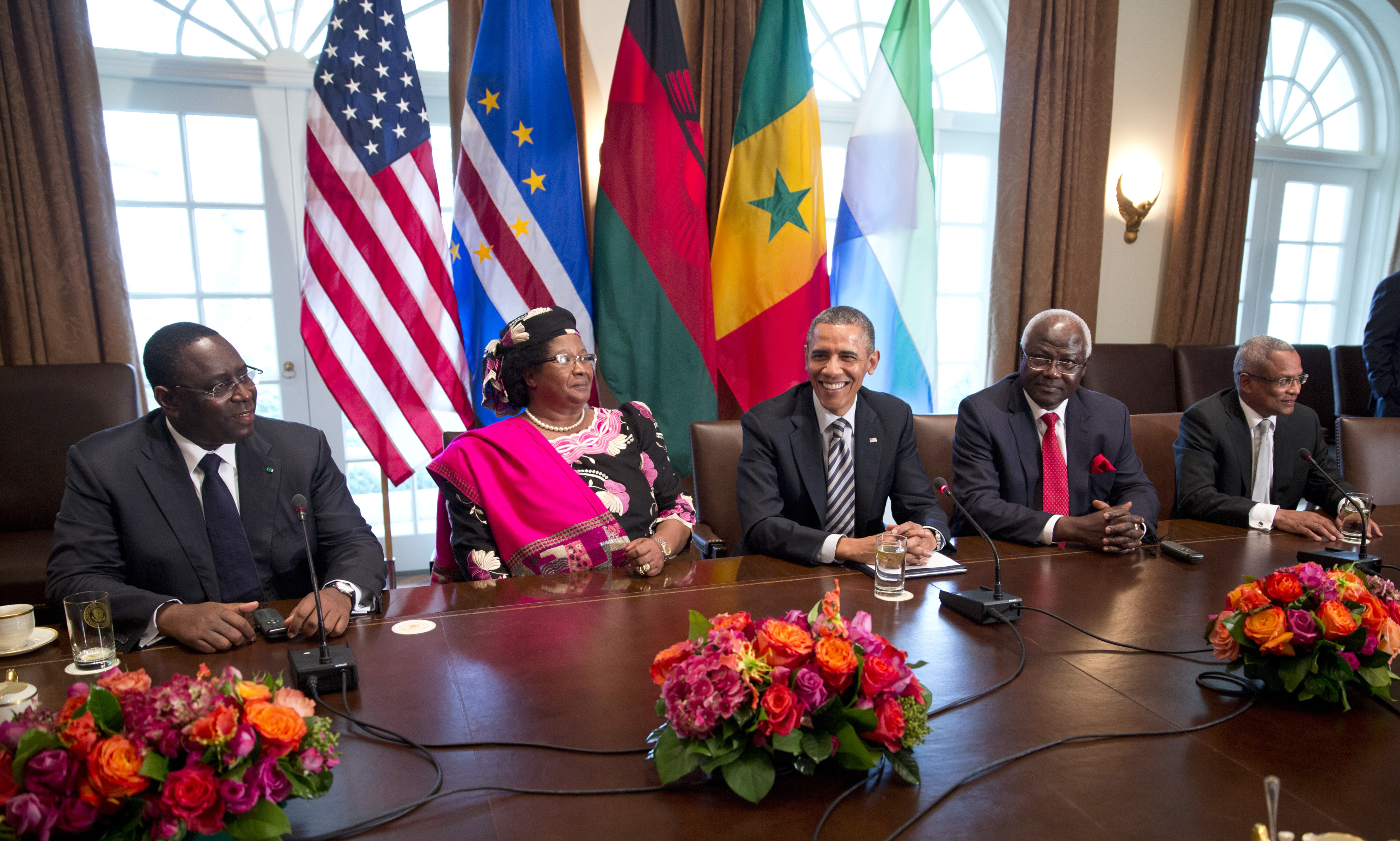
Source: NASA / Getty
Sarah Margon, Human Rights Watch’s Washington director, told the Washington Post at the time of the summit that the fact that activists were not able to speak directly to leaders “really contradicts the administration’s rhetorical commitment to civil society, independent voices and independent media throughout the continent.”
Another project that faced reproach was Obama’s five-year Power Africa initiative, announced while in Cape Town, South Africa, in 2013. Because more than 70 percent of Africans do not have reliable access to electricity, the U.S. President pledged $7 billion in federal assistance and loan guarantees through the program; it was matched by $14 billion from the private sector.
But the optimistic goal of adding 10,000 megawatts of power and 20 million new connections in sub-Saharan Africa faltered. Obama’s administration struggled to get through the bureaucracy and clearances needed for electricity to actually get to the people in the six countries—Ethiopia, Ghana, Kenya, Liberia, Tanzania and Nigeria—pinpointed for the project.
Power Africa is a blatant indictment of Africa’s biggest weakness: convoluted politics. But it also exposed America’s biggest weakness as well: a refined version of convoluted politics combined with overzealous legislation.
Policy aside, positive sentiment towards Obama still holds steadfast for many Africans. And with the Obama administration’s time coming to a close, we can all only reflect on the legacy he worked so hard to build. For many of us in the African diaspora, the statement of just being present and acknowledging issues was a step in the right direction.
“I adore the Uncle Obama, Auntie Michelle and cousins Sasha and Malia,” said Akua Afwireng, the 30-something Ghanaian owner of NYC-based beauty brand Lux Shea Organics.
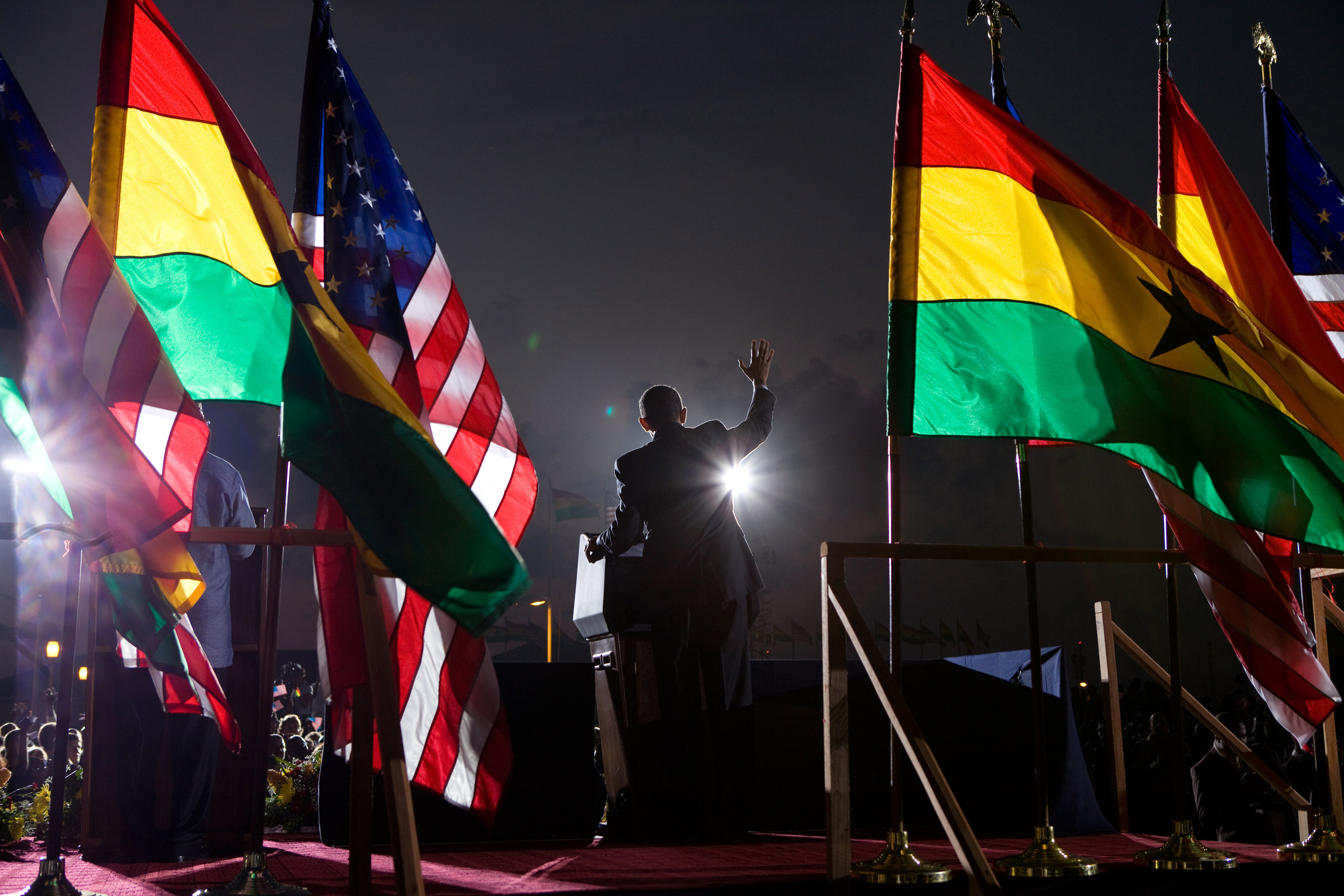
Source: The White House / Getty
“Despite the adversity, hatred and blatant disrespect they’ve had to endure, Obama’s presidency dispelled what the naysayers worked so hard to stain both terms with. They have restored confidence within the African American community and sprinkled ‘Black Girl Magic’ everywhere. Millennials now understand their impact in politics and people are paying attention,” Afwireng adds.
While the future of the United States is uncertain, there is one thing that’s guaranteed: The next leader of the country will have to answer to Americans, Africans and global citizens too, to manage tangible expectations in the 21st century and beyond.
Danielle Kwateng-Clark is a Brooklyn-based writer and founder of TheVolta.co. Having worked in the fashion sphere for nearly a decade, her passion is highlighting talent of the African diaspora. Follow her @danikwateng.
- Libya: Entertainment, Food, Languages, Places To Visit + More
- Algeria: Entertainment, Food, Languages, Places To Visit + More
- Egypt: Entertainment, Food, Languages, Places To Visit + More
- Tunisia: Entertainment, Food, Languages, Places To Visit + More
- South Sudan: Entertainment, Food, Languages, Places To Visit + More
The Obama Legacy In Africa: A Prodigal Son’s Efforts was originally published on newsone.com
